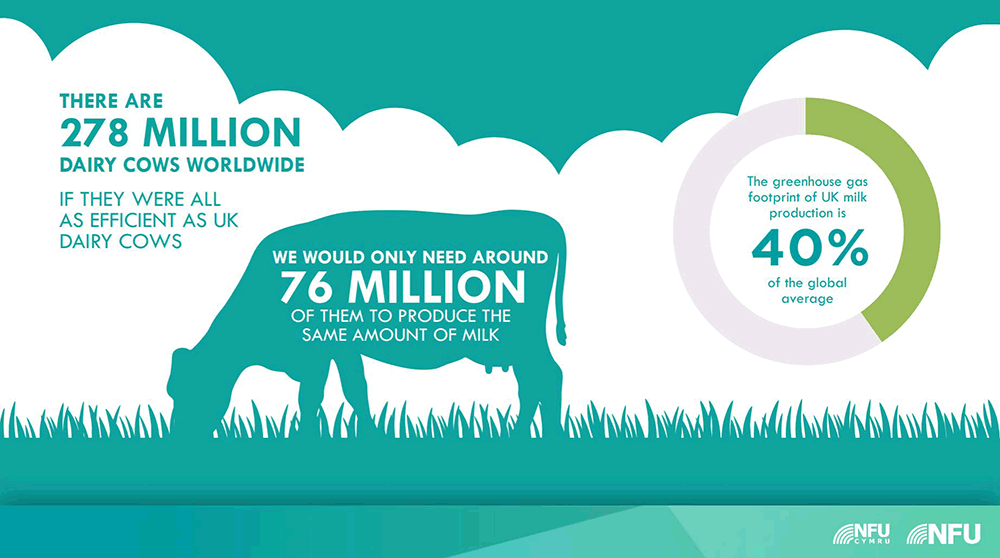Innovative farming
British meat is more than just the food on your plate. It represents the families, communities and workers in the food industry across the UK.
Our farmers are custodians of 71% of the British Isles which includes unspoilt British Countryside that’s grazed by livestock. They represent generations of built-up knowledge and connection to the land.
Our farmers instinctively know that the relationship between us and the land is two sided and that it must be respected. But there’s also an innovative drive in our farming community and food manufacturers to improve the quality, sustainability and accountability of British produce.
It’s true that intensive arable farming has seen a reduction in the biodiversity of Britain’s countryside over the last century. But farmers who commit to restoring properly managed grazed pasture are uniquely placed to be part of the environmental solution, and the National Farmers Union has set the ambitious goal of reaching net zero greenhouse gas emissions across agriculture by 2040.
British farmers are stepping up to the challenge of future proofing our productive capability for years to come and practicing good stewardship of the land by:
- Protecting soils and increasing the amount of organic matter (by applying organic animal manure) to boost fertility, increase carbon sequestration and reduce soil erosion. The Soil Association has more detail on this subject.
- Protecting water and preventing floods through planting and land management.
- Promoting biodiversity and protecting a rich variety of native species by adjusting their farming systems to support wildlife habitats.
- Increasing productivity and reducing inputs (producing more from less) through technologically driven precision farming methods which deliver nutrients and crop protection more efficiently.
- Reducing carbon footprint through innovations like feed additives to reduce methane emissions and improve the health of livestock or anaerobic digestion to convert animal manures into renewable energy.

Soil-to-Nutrition (S2N)
Rothamsted Research’s Soil-to-Nutrition Programme aims to help farmers both here and overseas make interventions on their farms that make meat production more sustainable and cost effective. From their base in the UK, they develop solutions to agriculture’s most challenging problems and export them across the world.
Their work is at the forefront of the drive to improve farming practices and evolve management systems to optimise animal husbandry and productivity. It covers every aspect from grazing to genetics.
The Rothamsted researchers are considering the many trade-offs of sustainable farming as they devise metrics to cover three main and competing demands:
- societal needs – for highly nutritious food
- economic needs – for production efficiencies
- environmental needs – for minimal impact
All three are linked and mutually dependent. For example pasture seeded with a single plant variety could yield highly performing livestock in terms of weight gain per day, but the downside would be loss of local biodiversity. This is just one of the challenges the Rothamsted team is tackling.
Rothamsted Research is the oldest agricultural research institute in the world. It is home to some of the longest running permanent pasture experiments like the Hoosfield trial that’s been running continuously since 1952 and is providing valuable insight into the impact that applying animal manure can have on soil organic matter levels. Visit the Rothamsted Research website.
